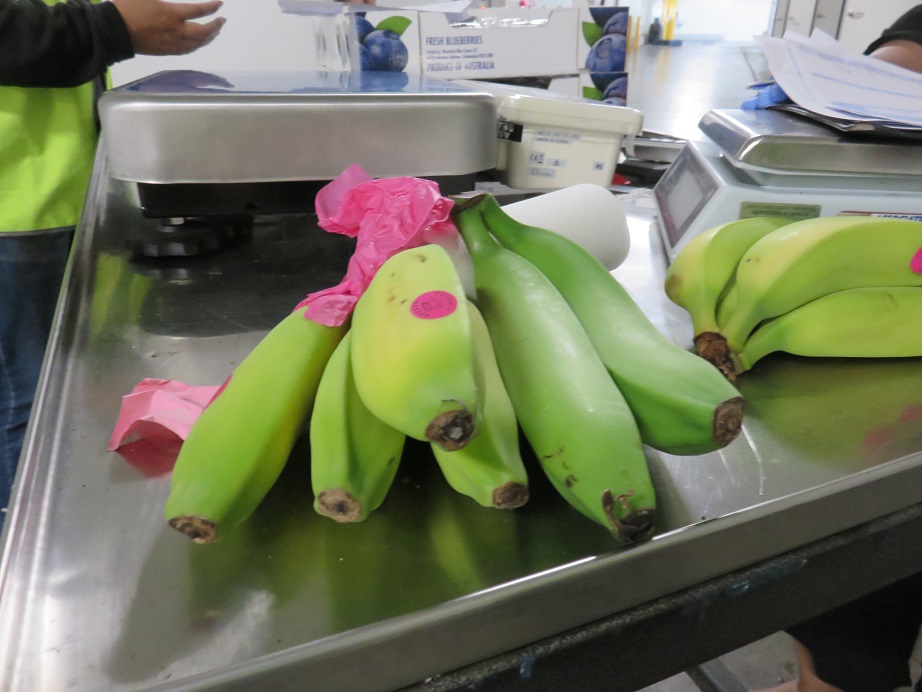Australia: Freshmax Brisbane upgrade nears completion

As the first site in Australia to use 100% Ethy-Gen catalytic converters for ripening, the facility caters to all members of the Freshmax Group along with third-party users.
Through careful planning and substantial investment, Freshmax Brisbane's upgraded facility is almost fully operational with capacity to ripen around 1,200 pallets of fruit per week.
Last month Fresh Fruit Portal visited the site to catch up with Brisbane chief executive officer Peter Sillcock, who explained what prompted the decision to expand.
"We put in additional ripening capacity with the goal to bring it up to the highest standard we could. This included climate controlling the whole site, and changing our ripening gassing systems to the Ethy-Gen system instead of using ethylene gas in the bottles," Sillcock said.
"It goes through a catalytic converter in a room that produces the ethylene gas, so it’s a lot safer. You don’t have gas bottles around the site and it’s a more consistent way of ripening.
"And you don’t get a build-up of carbon dioxide as you can in other ripening rooms." 
The business used to only operate on half of the 10,000 sqm site with the remaining 50% previously used by Lindsay Transport.
"They've [Lindsay] gone to a greenfield mega-facility and consolidated a number of their depots into one, so when that opportunity came up we took the opportunity to take extra space, driven by the growth of our avocado business," Sillcock said.
"The upgrade also enables us to conduct more third-party ripening and logistics," he said.
"Although we have seen a number of the larger producers forming direct relationships with supermarkets, they need capability in the middle to do quality control, ripening, and meet all the supermarket requirements on labeling and QA (quality assurance).
Construction began in October, 2016 and it is expected to be finalized by the end of this month.
"From a purely ripening perspective we now have 850 pallet spaces, so probably 1200 pallets of ripening per week, but there’s also quite a lot of transshipping and staging that doesn’t require ripening so the rest is refrigerated," he said.
"This site becomes a bit of a hub. Product is transshipped through Brisbane, coming down by rail from North Queensland and changes onto other transport.
"With bananas we wanted to take control of that process to know that the fruit was being handled in the right way."
He added avocados and mangoes were the two other major products ripened at the site as they require "staging" before they reach consumers.
"We do third-party ripening for some of the bigger operators and we sell in our own right to the likes of Coles, Woolies and Aldi – for our own use, our own customers plus some third-party," he said.
When asked about imported produce, he said Valleyfresh already brought several fresh produce items through the facility including garlic, asparagus, citrus, stonefruit and blueberries.
The challenge of Panama Disease Tropical Race IV (TR4)
When asked about the difficulties associated with TR4 and the threat it poses to bananas in Far North Queensland, Sillcock is positive about mitigation efforts from industry and extolls the benefits of diversification.
"If you go back prior to Cyclone Yasi (2011) so much of the production was around Tully and Innisfail. It was very concentrated with nearly 80% of the bananas produced there," he said.
"What we saw was further development of Lakeland and the Atherton Tablelands or Mareeba - the strength of Freshmax Brisbane has historically been the geographic diversity as the first company to really push for Lakeland and the Tabelands to be developed to spread cyclone risk.
"But now that’s been against disease risk as well for Panama.
"Whilst there have been outbreaks in Tully and they’ve been well controlled by the industry and jumped on very quickly, if it was to progress in that region we’re hoping it doesn’t show up in those newer areas that have been developed.
He said consumption remained strong for bananas, although recovery took a while after Cyclone Larry in 2006 and even after Yasi it "took a bit of a dip".
"But really it’s back into full strength. It’s a very mature category - consumption’s 98% so it’s hard to get growth," he said, adding export wasn't much of an option due to tough international competition, although shipments could be made to New Zealand through Freshmax Group in the event of any shortages.
He said yield was "a bit of an issue" in exotic bananas although the company was always on the lookout for suppliers.
"They tend to have very low yield compared to Cavendish so pricing is quite important to make it viable to grow, but we have dabbled in exotics previously like Red Dacca, Monkey bananas, Señoritas.
"The other thing is there is no consistent supply of plantains (cooking bananas) in this country – we’re always looking for growers. If people have them we’re happy to hear from them."

















































